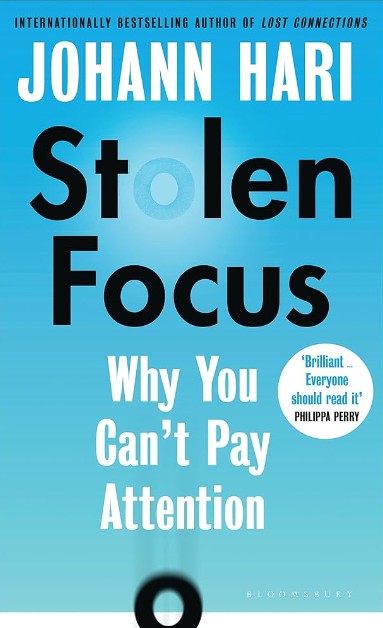
I recently started listening to the audiobook Stolen Focus: Why You Can't Pay Attention by Johann Hari. The author, a British journalist, uses a mixture of personal anecdotes and multiple citation of researches and specialists to talk about the focus of individuals and the society as a whole.
He recorded the audiobook himself, which I aways enjoy in non-fiction audiobooks - and even more in autobiographies. The director of the recordings could have been a little more rigorous here, there are several moments that the narrator loses his breath or stutters.
I found interesting the explanation of the origin of the term multitasking, that first appeared in 1965 in the context of computers with more than one processor being able to do multiple tasks at the same time and later on started to be used for humans. The thing is, humans can't really multitask. What the brain does is to continuously switch between tasks, this happens really fast and unconsciously. So, humans don't multitask they just juggle tasks and that has a cost. Every time the brain goes back to a task, it needs to recalibrate, to remember what you were doing, how far you were in that task and proceed to continue that task. Studies show that "multitasking" reduce the efficacy of the task performed and the capability of remembering things that happened during the "multitasking".
Other interest point was about fast reading. Studies shows a deterioration of comprehension and retention of what was read when people trayed to read faster than they normally would.

I was actually just thinking about this topic, specifically with regard to retention, as I realize my ability to comprehend reading since I left school has gotten so bad, in English or in any language. Maybe I'll give this a read! Good post!